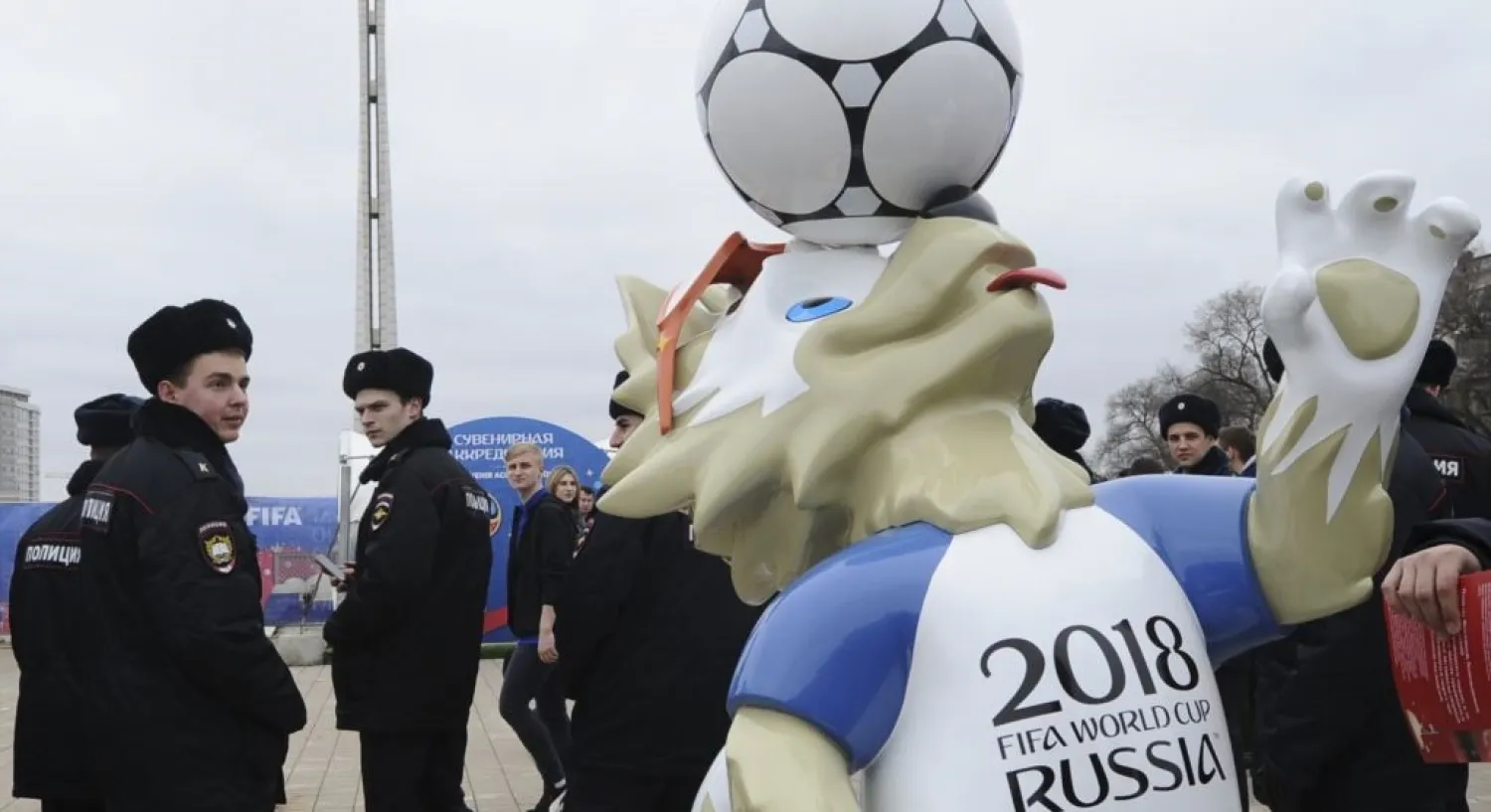It appears that the battle against the terrorist ISIS group and its affiliates will not end any time soon. The group has demonstrated that it can change its tactics and adapt in new environments, making it increasingly difficult to defeat it.
The latest threat posed by ISIS is related to the FIFA World Cup, hosted by Russia next month. The event will take place between June 14 and July 15 and will cover 11 cities.
All signs indicate that the terrorists are seeking to carry out an attack in Russia, raising many questions over why they would want to shift their battle there.
Has ISIS had a hand in recent terrorist attacks in Russia and some neighboring countries?
The alarm bells over ISIS staging an attack during the World Cup rang when the group circulated a poster with a direct threat to Russian President Vladimir Putin, saying: “You will pay the price for killing Muslims.” The poster showed an armed ISIS member against the backdrop of a major explosion at a crowded football stadium. Putin appeared in the corner of the poster, with a red target sign aimed at him.
We here must ask why this threat was specifically made against Putin and is this the first time?
It is understandable for ISIS to consider the Russian president as its major enemy given that Moscow’s military intervention in Syria was a decisive factor in shifting the battle in favor of the regime. The advanced Russian weapons used in the war-torn country have also led to major losses in ISIS ranks, as opposed to the lesser defeats they were dealt by the US-backed Kurdish forces.
Can ISIS’ revenge against Russia take place in the summer of 2018?
The above-mentioned poster was not the first aimed at Russia. Its “Wafa” media firm had in October used the image of Argentine football superstar Lionel Messi to promote its terrorist propaganda against Russia. It showed Messi crying blood tears behind bars. Written on the poster was a threat: “Fair terrorism. You are fighting a country that does not know the meaning of defeat.”
Another poster showed an ISIS member at a Russian football stadium with a statement, written in Russian and Arabic, saying: “Wait for us.”
Some have wondered why Russia would be targeted during the World Cup, given that an attack would leave scores of victims from not just Russia, but across the globe.
Some believe that succeeding in carrying out an attack would give the terrorists a massive propaganda boost and bolster its media image that has been weakened given the losses in Iraq and Syria.
The participation of the Saudi Arabian and Iranian national teams in the World Cup could be seen as added motivation for ISIS to attack Russia, said a report released by Britain’s IHS Markit.
The compilers of the report overlooked the fact that Egypt is also competing in the tournament. Egypt has since February been carrying out a major security operation against ISIS in the Sinai region. In recent days, the military and security forces eliminated the group’s second-in-command in Sinai, Nasser Abou Zaqoum, which could be a motive for the terrorists to take their revenge against Egypt and its fans in Russia.
Russia has not been spared ISIS attacks in the past, with the latest assault taking place in February. The group claimed responsibility for the attack against a Dagestan church that left five people dead. In December, the group claimed responsibility for an attack against a supermarket in St. Petersburg that wounded 13 shoppers. In August, ISIS claimed a stabbing attack in Surgut that injured eight people.
A cause for concern for Russian authorities is the extent of ISIS’ reach in the country as demonstrated by its attack in April 2017 against a security service bureau in Khabarovsk that left two people dead.
ISIS attacks against Russia date back to 2015, making it evident that the World Cup could indeed be threatened by the group. The security forces in the country are taking its threats seriously, demonstrated in an announcement days ago that they had arrested a pro-ISIS group that was plotting an attack in Rostov. The security forces confiscated during their raid on the cell several weapons and explosives, which were ready to be set off. Media reports said that instructions for the cell to carry out its attack came from Syria.
Is there a chance to save the World Cup from ISIS, which has, without a doubt, been planning to carry out an attack in Russia?
Head of the Russian Federal Security Service Alexander Bortnikov recently confirmed that ISIS terrorists will be seeking to target the World Cup, especially since several of those who were defeated in Syria and Iraq have headed to former Soviet republics that neighbor Russia.
This fear was backed with alarming figures that showed some 4,500 Russians had joined ISIS, while 20,000 people from neighboring countries are suspected of involvement with extremist religious groups.
Russia is not alone in its concerns over ISIS. European countries share its fears given that droves of its people will be heading to the tournament. British Foreign Secretary Boris Johnson had recently traveled to Moscow for talks with Foreign Minister Sergei Lavrov to discuss various issues, including security at the World Cup.
In Russia, meanwhile, the Interior Ministry will seek to boost its security measures through establishing new police units to ensure the safety of the fans.
















